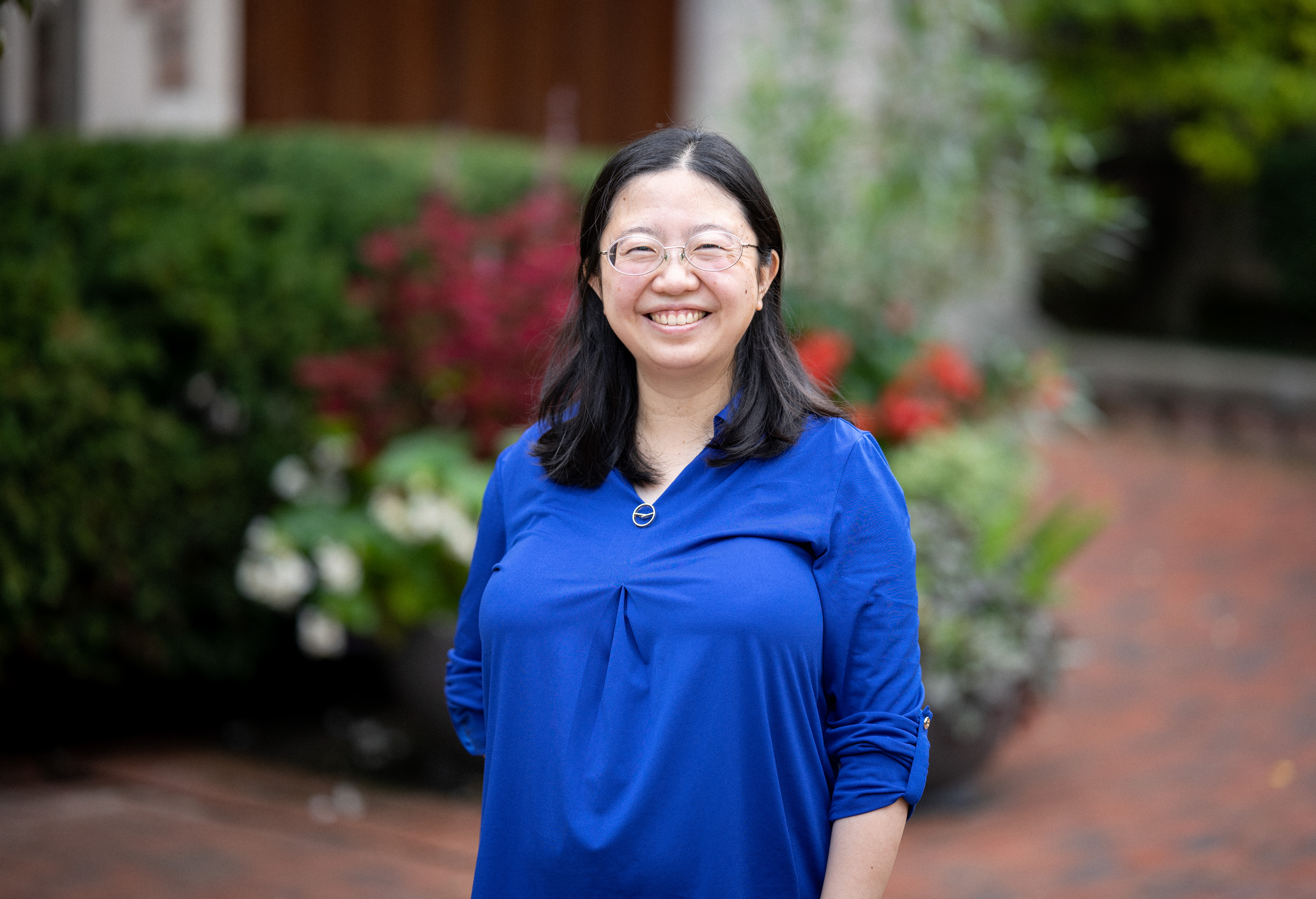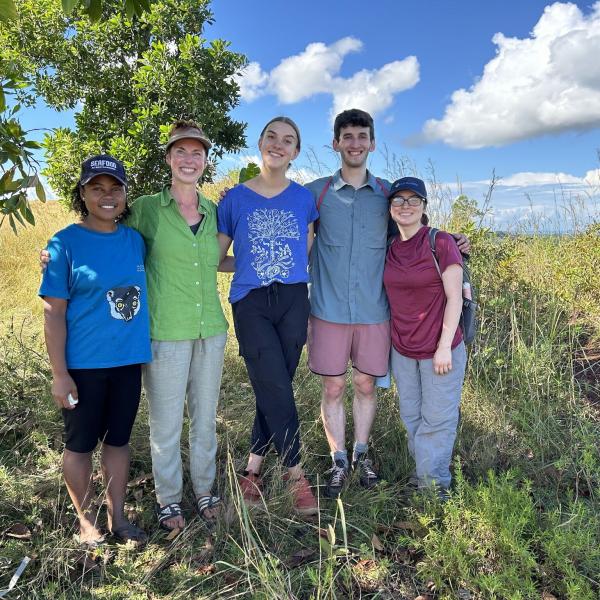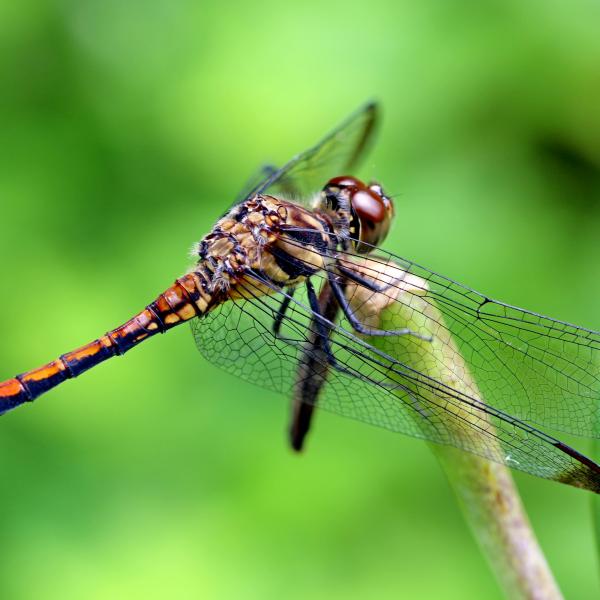Jennifer Wang, assistant professor of biology, won a $1,244,998 grant from the National Institutes of Health for a project investigating the molecular mechanisms of centriolar triplet microtubule formation. These complex structures play a critical role in the production of new cells and have implications for human health.

In animal cells, centrosomes are involved in cell division and template the growth of cilia, which are small antenna-like projections involved in cell signaling and motility. Centrosomes and cilia are found in almost all cells of the human body. Defects in centrosomes and cilia are linked to many human diseases, including cancer; microcephaly, a birth defect where the head and brain are smaller than expected; and ciliopathies, a group of genetic disorders whose symptoms include infertility, polycystic kidney disease, polydactyly, obesity, and respiratory problems.
The Wang lab is interested in studying how centrosomes and cilia are formed, how they are regulated, and how they are misregulated in disease.
“Centrosomes and cilia coordinate and organize hundreds of proteins for cell signaling and motility, but the mechanisms by which they do so are not well-understood,” Wang explained. “This grant will allow us to study the ways by which the core of the centrosome, known as a centriole, is organized by a specific, unique arrangement of microtubules. These are the triplet microtubules, which are only found on centrosomes and not known to be present anywhere else within the cell. We will define how these triplet microtubules are formed, and how they might provide a unique hub of signaling and function at the centrosome.”
“Understanding how the centrosome is formed can inform us about how centrosomes may be regulated during development,” Wang said. “In addition, it will help us shed light on how these organelles are dysregulated in disease.”



